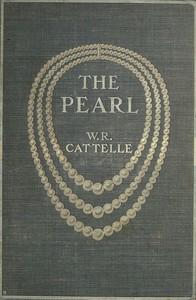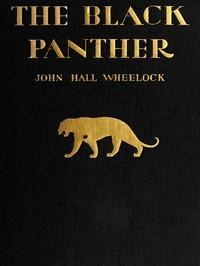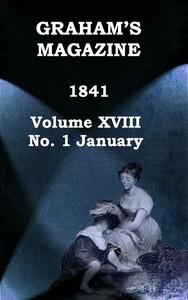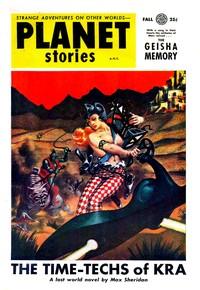Read this ebook for free! No credit card needed, absolutely nothing to pay.
Words: 83680 in 27 pages
This is an ebook sharing website. You can read the uploaded ebooks for free here. No credit cards needed, nothing to pay. If you want to own a digital copy of the ebook, or want to read offline with your favorite ebook-reader, then you can choose to buy and download the ebook.
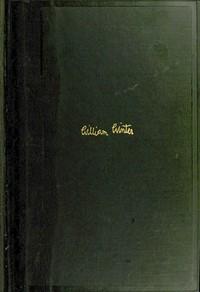

: The Life of David Belasco; Vol. 2 by Winter William Winter William Jefferson - Theater United States; Belasco David 1853-1931
LENORE ULRIC.--AND "THE HEART OF WETONA."
Many players of talent and present eminence have been fostered and developed under Belasco's management--that being, indeed, one of his most important services to our Stage. He is an inveterate theatre-goer,--attending performances everywhere and, sooner or later, seeing practically everything and everybody visible on the American Stage. This customary vigilant observance of all activity within his profession he facetiously describes as "my fishing trips," and, conversing with me on the subject, he has remarked: "It is often a long time between 'bites,' but one of the delights of the sport is that you never know, as the curtain goes up, how soon you may 'hook a big one.' Among the biggest I have ever landed is, I believe, little Miss Ulric: I think she will grow bigger every season she is before the public."
In its original form the scene of that play was "A Middle Western Town" , its five characters were Caucasian, and its story was one of erring love, deceit, shame, and rescue set in a commonplace rural environment,--a main purpose of its author being, presumably, to exhibit a group of conventional persons impelled by violent passion yet restrained by religious feeling. In that form it received a trial presentment, June 28, 1915, at Atlantic City, New Jersey, with this cast:
"Although its material was undeniably good, I had felt strong doubts about the piece, from the first, but I gave it a 'try-out,' anyway," said Belasco. "Then I saw that it would not do as it stood and took it off, and, at my suggestion and under my supervision, with such assistance as I could give, Mr. Scarborough rewrote 'The Girl' and eventually we had a real success with it."
The rewritten play was first acted, January 20, 1916, at Stamford, Connecticut, under the title of "Oklahoma"; soon after it was called "The Heart of Wetona," and under that name it was brought forth, February 29, at the Lyceum Theatre, New York, where it held the stage until May 20.
The ethics of all this will hardly bear scrutiny--but the dramatic effect of it in representation was undeniable; and, perhaps, where virtue is, presumably, intended it is to consider too curiously to consider further. Miss Ulric presented with vigor, skill, simplicity, sustained continuity of identity, and remarkable force a true, pathetic, and alluring ideal of unsophisticated girlhood, confiding feminine ardor and passionate distress, and she gained an auspicious success.--The cast of "The Heart of Wetona," as acted at the Lyceum under the management of Belasco and a corporation called "Charles Frohman, Inc.," is appended:
VARIOUS PRODUCTIONS--MISCELLANEOUS RECORD: "WHAT'S WRONG."--"THE VANISHING BRIDE."--"THE LOVE THOUGHT."--"ALIAS."
During the last five years Belasco has made productions of various plays which do not require extended consideration, though they must be specified and briefly described in this Memoir in order to complete the record of his labors. Those plays are "The Governor's Lady," "Years of Discretion," "The Temperamental Journey," "What's Wrong," "The Man Inside," "The Vanishing Bride," "The Phantom Rival," "The Boomerang," "The Love Thought," "Seven Chances," "Alias," "The Little Lady in Blue," and "The Very Minute."
Of these, "What's Wrong," by Frederick Ballard; "The Love Thought," by Henry Irving Dodge; "The Vanishing Bride," adapted by Sydney Rosenfeld from a German original called "Tantalus," by Leo Kastner and Ralph Tesmar; and "Alias" , by Willard Mack, are plays to which Belasco gave trial productions, and all of which, except "The Vanishing Bride," he purposes to present in New York hereafter, when they have been smoothed and polished and are deemed by him to be ready for metropolitan presentment. "What's Wrong" was brought out at the National Theatre, Washington, D. C., May 4, 1914; "The Vanishing Bride" at Long Branch, New Jersey, July 27, the same year; "The Love Thought," at the Parsons Theatre, Hartford, Connecticut, April 26, 1915; and "Alias," first under its original title, at the Apollo Theatre, Atlantic City, May 8, 1916, then, February 5, 1917, at the Belasco Theatre, Washington. "The Vanishing Bride" would have been produced in New York soon after its trial had not Belasco found Mr. Rosenfeld excessively fractious and troublesome to deal with. "I had spent ,000 on that play," Belasco has told me, "and I know it could be made a success, because it has excellent material in it. But life is too short for disputes with Mr. Sydney Rosenfeld. I am always glad to do my best for the men and women, writers or actors, who work with me, but I am not willing to wrangle and fight with them for the privilege of doing so! Therefore, I preferred to pocket my loss and let the piece go--with my blessing and the hope that its adapter will find a more satisfactory producer."
The casts of the trial productions enumerated are here appended:
CAST OF "WHAT'S WRONG."
A REVIVAL OF "THE AUCTIONEER."
Free books android app tbrJar TBR JAR Read Free books online gutenberg
More posts by @FreeBooks
